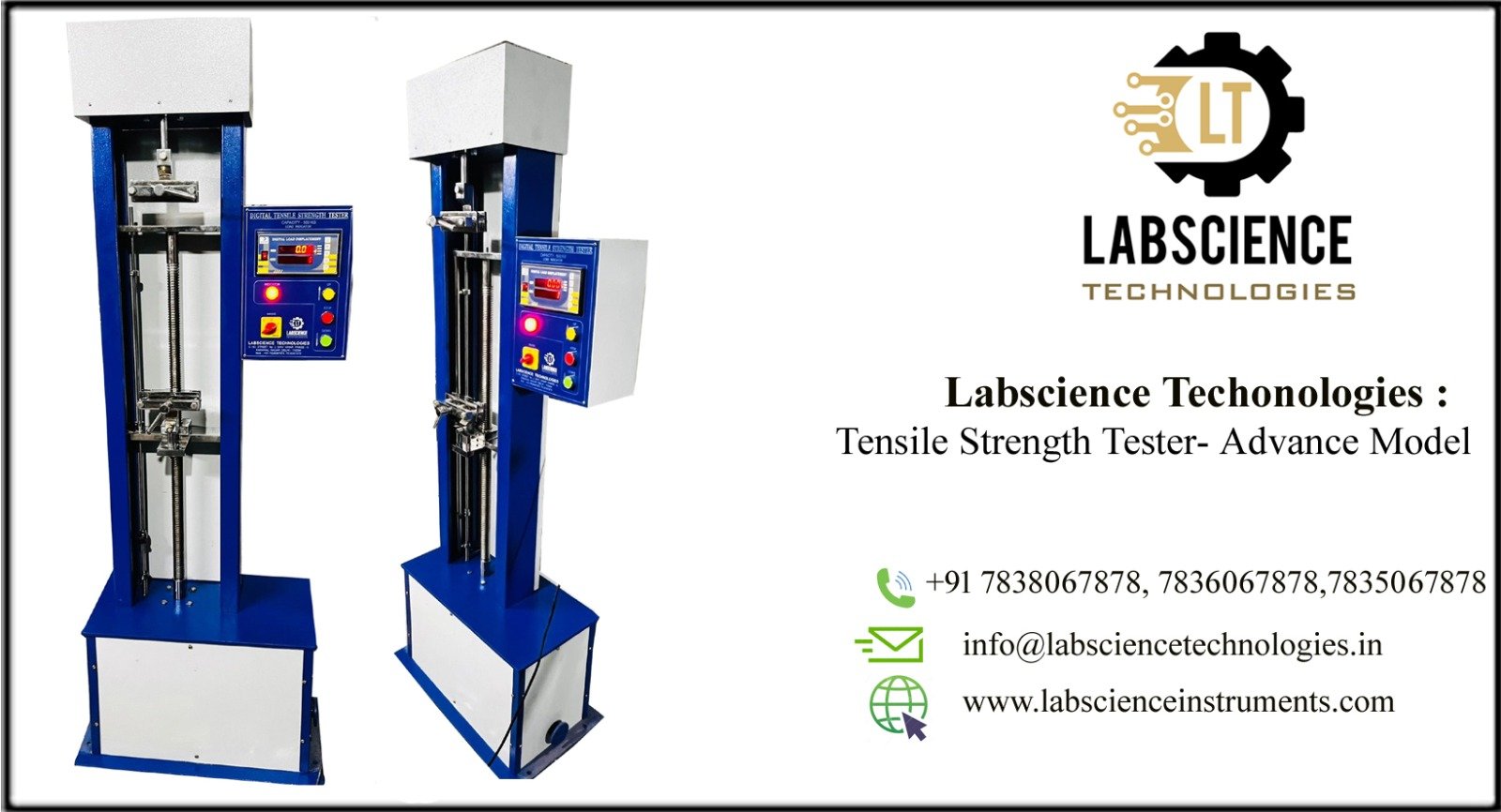Material testing equipment
Material testing equipment is critical for evaluating the properties of materials to ensure they meet specific standards and performance criteria in various industries. These tools help manufacturers, researchers, and engineers assess the strength, durability, flexibility, and other physical or chemical characteristics of materials like metals, plastics, ceramics, and composites.
There are several types of material testing equipment, each suited for different kinds of tests. Tensile testing machines are used to measure how a material reacts when stretched, determining its tensile strength, elongation, and modulus of elasticity. Compression testing equipment is designed to test the material’s ability to withstand compressive forces, often used for construction materials like concrete and metals.
Hardness testers, such as Rockwell, Brinell, and Vickers, evaluate the resistance of materials to indentation, while impact testing machines (like Charpy or Izod) measure a material’s ability to absorb energy during a collision or sudden impact. Thermal testing equipment, such as differential scanning calorimeters (DSC), helps determine the material’s behavior under extreme temperatures, commonly used in polymers and metals.
In the plastics industry, specialized equipment like the Melt Flow Index (MFI) tester is used to measure how materials flow under heat, ensuring the quality and consistency of polymer-based products. Overall, material testing equipment plays a key role in quality control, product development, and safety verification across industries.
Features of Material Testing Equipment
Material testing equipment is designed to provide precise measurements and assessments of various material properties, ensuring they meet specific performance criteria for industrial applications. The key features of these instruments make them essential for quality control, research, and compliance testing across sectors like manufacturing, construction, aerospace, and plastics.
Versatility: Material testing equipment supports a wide range of tests, such as tensile, compression, impact, hardness, and fatigue testing. This versatility allows for evaluation of different material characteristics, including strength, durability, flexibility, and thermal behavior.
High Precision: Advanced sensors and load cells ensure that measurements are highly accurate, critical for industries where material properties must meet stringent standards. Instruments often feature digital displays, providing real-time data for detailed analysis.
Customizable Settings: Many machines allow users to adjust testing parameters, such as temperature, load speed, or strain rate, to simulate real-world conditions. This customization is particularly useful for specific applications in fields like aerospace or automotive engineering.
Automated Operation: Modern material testing equipment often includes automation for increased efficiency and consistency. Automated systems reduce human error and improve repeatability of tests.
Data Collection and Analysis: Many devices offer integrated software for recording, analyzing, and exporting test data, making it easy for engineers and researchers to interpret results and maintain records for compliance.
Specifications of Material Testing Equipment
Material testing equipment is designed to provide precise and reliable evaluation of material properties across various industries. These machines are built with specific technical specifications that define their performance, accuracy, and application scope.
Load Capacity: The load capacity of material testing machines varies based on the type of test. Tensile and compression testers typically offer capacities ranging from 1 kN to over 1,000 kN, allowing them to handle materials of different strengths, from plastics to high-strength metals.
Testing Speed Range: The ability to adjust testing speeds is crucial for accurately simulating real-world conditions. Testing speeds often range from 0.001 mm/min to over 1,000 mm/min, depending on the material and test type (tensile, compression, or impact).
Measurement Accuracy: High precision is a key specification. Load accuracy is typically within ±0.5% of the reading, while displacement accuracy can be within ±0.01 mm. This ensures repeatability and reliability of test results.
Data Acquisition and Software: Modern material testing equipment comes equipped with advanced data acquisition systems. These systems record real-time test data and allow for analysis through specialized software, which generates detailed reports and graphical results.
Environmental Control: Some testing machines are equipped with environmental chambers, enabling tests to be conducted under specific temperatures, humidity, or other conditions to replicate real-world environments.
These specifications ensure that material testing equipment can deliver precise, consistent, and comprehensive assessments across a broad range of applications.
Kindly fill this form to demand a call-back to from our client support boss with esteeming and details.
Call our Specialists for the Best Deal
+91 7838067878
Call Now
+91 7838067878

